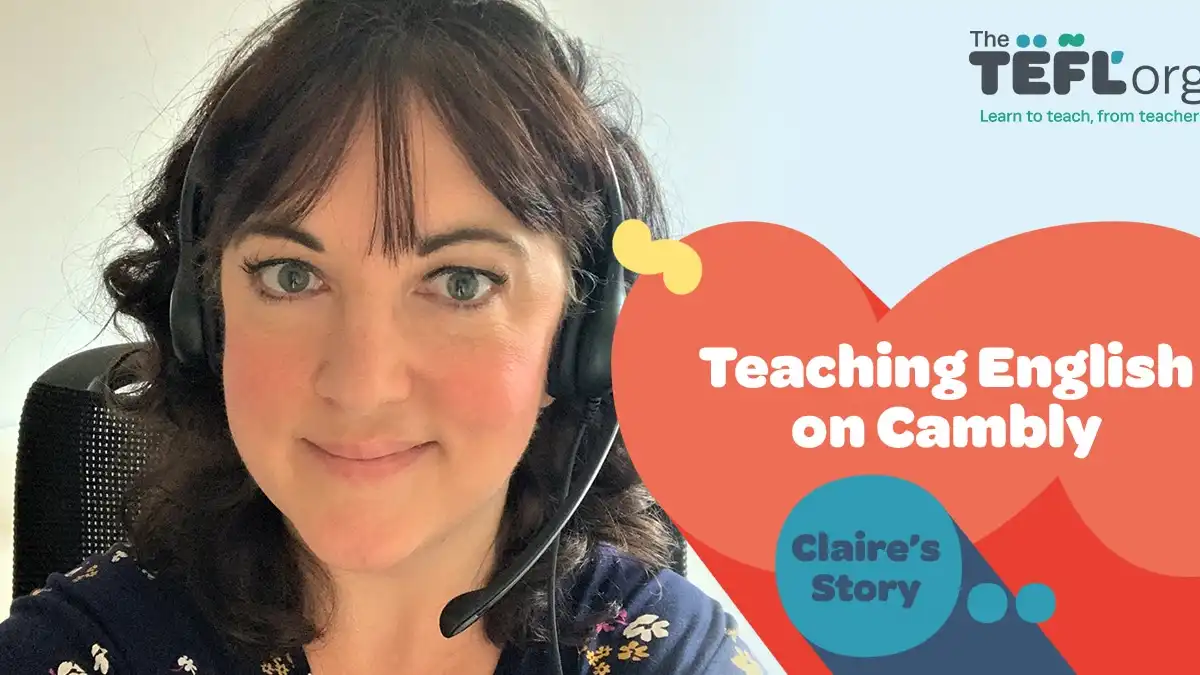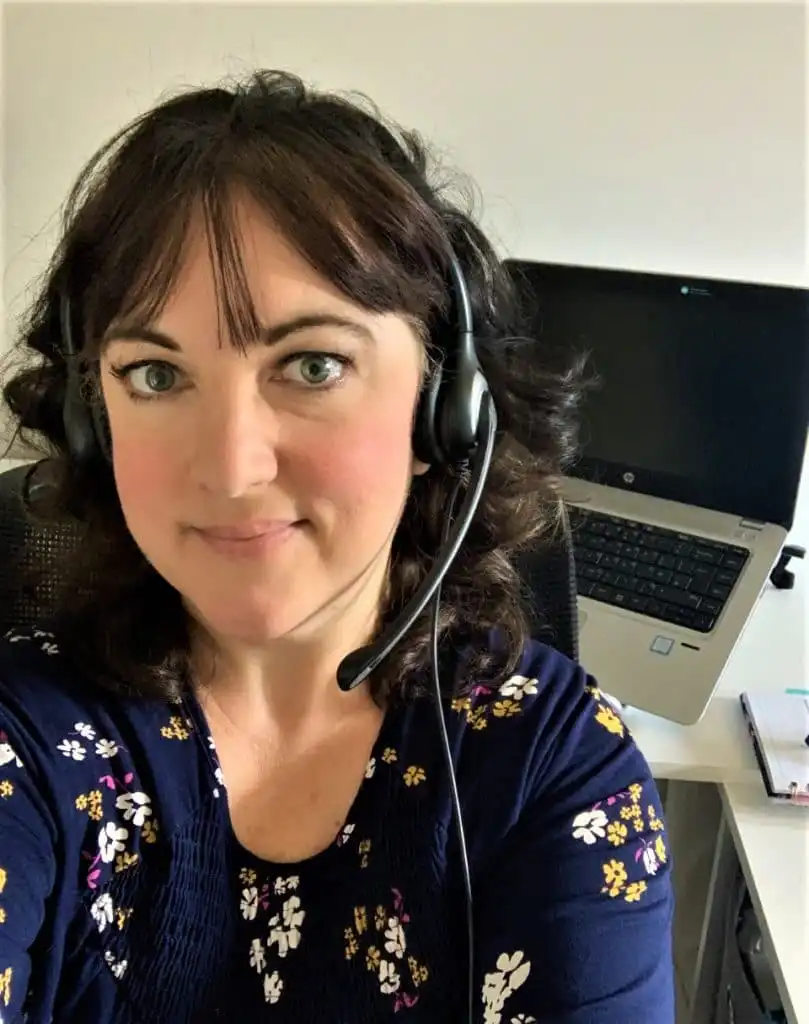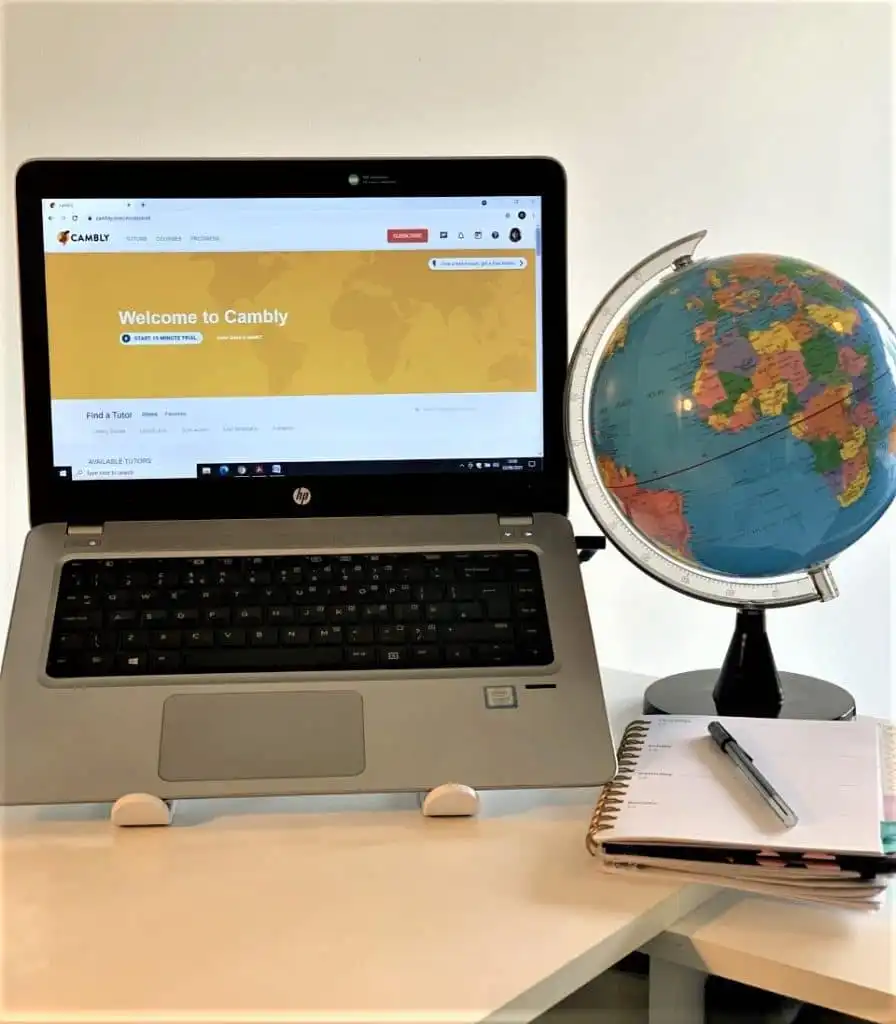
Teaching English on Cambly: Claire’s Story
During a Skype call, my brother-in-law (who’s a brick-and-mortar teacher) mentioned that it was possible to gain a TEFL qualification by doing an online course. This appealed to me immediately. I’ve had a lifelong passion for the English language, having done my Bachelors degree in English Literature and written creatively in my spare time for years. After researching TEFL organisations, I signed up with The TEFL Org, as they had excellent accreditation and the course sounded both thorough and enjoyable. It didn’t disappoint! The content was detailed but easy to follow, my tutor was responsive and helpful, and the grammar and methodology modules, in particular, helped me feel prepared and ready to embark on my new career as an English tutor. I also completed an advanced course in online teaching , combined with a practical element, which gave me the chance to actually deliver a lesson to my fellow students, live, over the internet — a slightly scary but very rewarding experience!
Starting out as an online teacher

Not long after being accepted by Cambly, I started to receive messages from students around the world looking to improve their writing ability or expand their vocabulary through speaking practice. Since many of them were also hoping to take a certain language exam (the International English Language Testing System, or IELTS, exam), I decided to specialise in the Writing and Speaking sections of this test. As The TEFL Org’s webinars recommend, specialising in a certain area not only makes it easier to market yourself (you can target a specific audience), it also negates the need to constantly create new resources for a wide array of topics. You only need a few choice websites, documents and lesson plans that you work from on a daily basis. Additionally, having a focussed Cambly profile and specialism meant I could quickly build up a schedule of regular students (I teach mostly intermediate/advanced adults) and operate on a reservation-only basis. While Cambly gives you the opportunity to go online at certain times and chat to any student who calls in during those hours, my preference was to have students book in with me. This way, I would know what they wanted to practice and I could be prepared.
A typical day teaching online

My typical day involves making a cuppa and getting comfy at my workstation at around 9am. I log on, check my tech is functioning, review my timetable and respond to students’ messages. The hours you work on Cambly are entirely up to you (students can book 1-to-1 classes, 24/7), so I set my schedule for 30 minute lessons throughout the day, with regular breaks for coffee, water, and fresh air! I know what each student wants to discuss ahead of time, as I’ve either taught them before or sent them a message to determine their study goals. Cambly also supplies a number of courses, which you can teach without any preparation, so these come in handy. Alongside my Cambly screen, I usually open a few tabs on Google relating to IELTS, have a couple of my own resources and fun conversation-starters to hand, and keep a grammar book and thesaurus close by (my students love synonyms). Then I’m all set! I wait for my first call, click to answer, and enter my virtual classroom.
I’m still a Cambly newbie but, in my experience, if you want to stand out on the platform, I’d suggest you nail your niche , compose a cracking profile and, once you start teaching, be engaged and really connect with your students. I always start by asking how their day is going, and if they told me in a previous lesson about something they had planned, I’ll ask how it went. I keep notes on all my regular students and try to be as attentive as possible, so they know they’re not just another face in a long line of learners, but an individual who I really want to help. I try to go the extra mile by sending feedback after class, along with useful links and suggestions for further reading. Although we only get paid for the time we spend on a call (tutors currently receive $0.17 per minute, which is $10.20 an hour), I believe it’s worth putting in effort outside the classroom to show your students how important they are to you. My final tip? Make them laugh. Some of them find it nerve-wracking to call a native speaker on the other side of the world and conduct a conversation in a language other than their own. If you can make them relax with a smile or a joke, it’ll go a long way.
Meeting people from around the world
After a period of uncertainty in my own life, becoming an online ESL tutor has been both fulfilling and eye-opening. The positive energy I get from my students means I don’t even mind when my alarm goes off in the morning! I enjoy helping people pursue their goals, pass an exam that will allow them to advance their education, or simply feel more confident in business meetings. I love cheering them up after a bad day, and they cheer me up in return. In fact, they’re not the only ones learning something new. I’ve been taught how to cook a mouth-watering Omani fish dish, discovered how the Vietnamese celebrate Tết (or New Year), and explored my students’ home countries through their personal stories. It’s a privilege to have this insight into the lives of people around the globe. We’re beamed into one another’s homes to share our knowledge and celebrate all the ways in which we’re different—and the same! It makes the world seem like a much smaller, friendlier place. Needless to say, having this sort of contact during the isolating months of lockdown has been invaluable and, as the world slowly opens up again, I hope tutoring with Cambly will continue to provide me with job satisfaction and joy for years to come.Claire lives in Manchester in the UK. In addition to her TEFL qualifications , she has a Bachelors degree in English Literature and a Masters degree in Creative Writing. She started tutoring online in 2020 after several years working in corporate offices, and loves chatting to her wonderful students around the world. She also teaches ESOL on a voluntary basis for a UK charity that helps refugees improve their English. In her spare time, she enjoys novel-writing, scary movies and cat memes!
